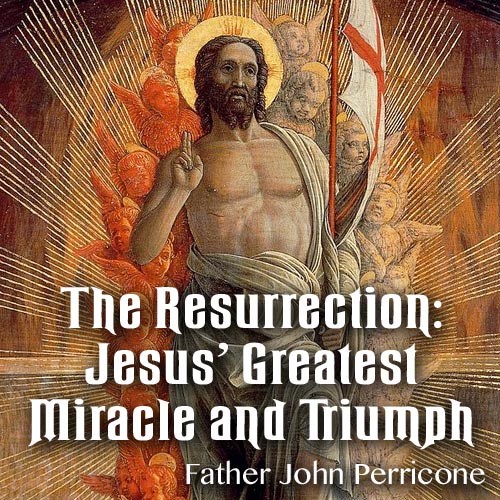The resurrection is often perceived through the lens of miraculous events encapsulated within religious texts, but the Bahá’í teachings present a multifaceted understanding of this profound concept. It is not merely an event associated with an extraordinary occurrence; it is a significant thematic element that permeates the essence of spiritual growth and societal progress. In exploring “The Greatest Miracle of the Resurrection,” one uncovers its multifarious implications, particularly its relevance in contemporary society.
One fundamental aspect of Bahá’í teachings is the belief in the progressive revelation of divine truth. This doctrine posits that God continuously bestows knowledge upon humanity through a series of Manifestations, each contributing to an evolving understanding of spiritual matters. The resurrection, therefore, is not limited to the physical return of a figure, such as Jesus Christ, but extends into the spiritual resurrection of the soul — the awakening and invigorating of human consciousness to higher truths.
At its core, the resurrection signifies a transformation, a metamorphosis from one state of being to another. In the Bahá’í context, this transformation is both individual and communal. Personal resurrection involves the individual’s journey towards illumination and enlightenment. It is the realization of one’s innate potential and the cultivation of virtues that lead to a conscious alignment with divine will. This self-actualization is critical, as it embodies the spiritual reawakening that Bahá’ís aspire to achieve.
Moreover, resurrection can correlate with the rejuvenation of society. A communal resurrection is achieved through the promotion of unity, justice, and peace, resonating with the Bahá’í principle of the oneness of humanity. The world today faces myriad challenges — from climate change to social injustice. These existential crises demand a comprehensive awakening of collective consciousness. The Bahá’í Faith emphasizes that societal transformation arises when individuals are spiritually revived and empowered to contribute positively to their communities. Therefore, the phenomenon of resurrection signifies not only personal redemption but also the collective elevation of society.
Another intriguing dimension is the notion of resurrection in relation to understanding divine mysteries. The Bahá’í approach encourages examination of deeper spiritual truths that lie beyond the surface of religious narratives. The resurrection is emblematic of the illumination available to those who seek knowledge earnestly. For Bahá’ís, engaging in this pursuit is akin to embarking on a journey filled with exploration and discovery, demystifying life’s profound enigmas. The intellectual engagement with sacred texts invites faithful individuals to uncover layers of meaning that resonate beyond their immediate context.
Innately intertwined with the subject of resurrection is the concept of sacrifice, a recurrent theme throughout the sacred writings. Within the Bahá’í perspective, the sacrifices made by the Manifestations of God serve as catalysts for the ultimate spiritual resurrection of humanity. By modeling selflessness and love, they exemplify the virtues necessary for transcending egocentric concerns and fostering a spirit of giving. The ultimate message underscores that true resurrection—be it of the individual or society—cannot be achieved without embracing sacrifice for the greater good.
The significance of resurrection extends into the realm of ethics and moral responsibility. Bahá’í teachings advocate for individual industriousness and accountability in creating a just and equitable world. The awakening to divine purpose engenders a profound ethical foundation that guides Bahá’ís in their interactions with all beings. To acknowledge the resurrection is to accept the accompanying responsibility to enact social change, to advocate for justice, and to embody compassion. It implores adherents to extend the hand of assistance to the marginalized and the downtrodden, recognizing that the fruits of resurrection are most apparent when shared collectively.
Interestingly, the theme of resurrection transcends cultural and temporal boundaries. Resonating throughout various religions and philosophies, it serves as a universal symbol of hope, renewal, and ultimate redemption. Each tradition, including the Bahá’í Faith, articulates its interpretation of resurrection, enriching the global tapestry of spiritual understanding. This universality underlines a profound interconnectedness among religious communities, emphasizing the potential for collaborative efforts in achieving mutual objectives toward peace and harmony.
In the context of our contemporary world, the revival symbolized by the resurrection offers a beacon of hope amidst the turmoil. Amid significant societal challenges, the encouragement to seek spiritual awakening is particularly poignant. These teachings remind us that with conscious effort, we can resurrect our spirits, fortify our communities, and embrace our shared humanity. We anchor our actions in the belief that change is not only possible — it is imperative. In this light, resurrection becomes both profoundly personal and universally collective. It is a call to transcend our limitations and to elevate our capacity for love and unity.
Ultimately, “The Greatest Miracle of the Resurrection” invites individuals and communities to engage earnestly in their spiritual and ethical responsibilities. By fostering an awareness of the deeper implications inherent in resurrection, one not only honors the legacy of the divine but also grapples with the pressing demands of the present. In doing so, individuals align themselves with the rhythms of life, embracing the potential for profound transformation that the resurrection embodies.
This nuanced understanding challenges the observer to reflect upon their relationship with the concept of resurrection, prompting introspection and potentially inspiring action towards personal growth and societal contribution. The teachings illuminate a pathway into a future grounded in spiritual elevation, aiming not only for personal resurrection but for a collective awakening that acknowledges the interconnectedness of all humanity.
